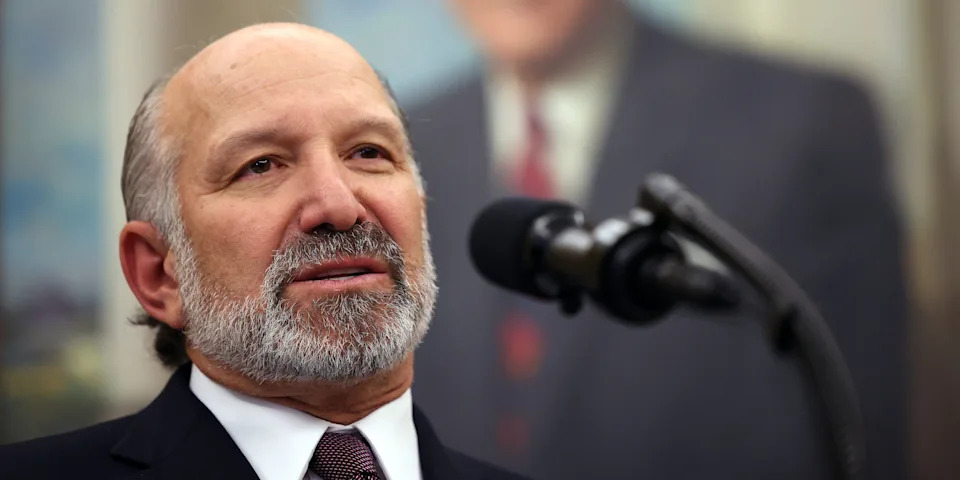
With investors eager for the US to announce progress on tariffs, the betting market has ranked which countries it thinks are most likely to hammer out a trade deal in the coming months.
Successful trade negotiations are needed to help blunt the impact of President Donald Trump's sweeping reciprocal tariffs, which sent the market into a tailspin earlier this month. After the S&P 500 briefly dropped to bear market lows, top banks have called for a policy pivot to initiate a durable rebound rally.
The White House has signaled negotiations are taking places, but hasn't announced a formal deal yet with any country targeted by the tariffs. However, according to Commerce Secretary Howard Lutnick, at least one trade deal may be nearing the finish line.
"I have a deal done, done, done, done, but I need to wait for their prime minister and their parliament to give its approval, which I expect shortly," Lutnick told CNBC on Tuesday.
Though it's unlikely to be with China — that's not in his purview, Lutnick said — speculators think they've narrowed down a list of countries that could be close to striking a deal.
Most Polymarket speculators have their money on India as the first deal to be minted, ranking it the top pick in a bet on the platform with nearly $2 million of trading volume.
A successful deal with India was hinted at as possible during a recent visit to the country from Vice President JD Vance, who indicated that the two nations were progressing on negotiations . Polymarket participants see a 91% chance that an agreement will be reached by July.
Here are the other countries bettors think are most likely to come to the table:
China and the European Union are the least likely on the list, at 31% and 30%, respectively.
Reaching a deal with Beijing is likely the top priority for investors, given that the country is one of America's biggest trading partners.
On Tuesday, the Port of Los Angeles noted that cargo volumes from China are set to tank dramatically in the coming week, which could lead to higher prices and emptier shelves at retailers in the next few months.
Read the original article on Business Insider

